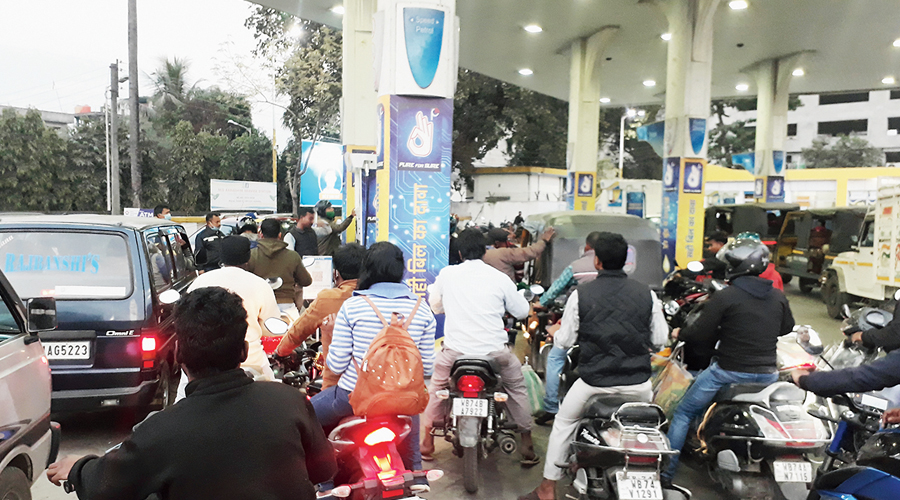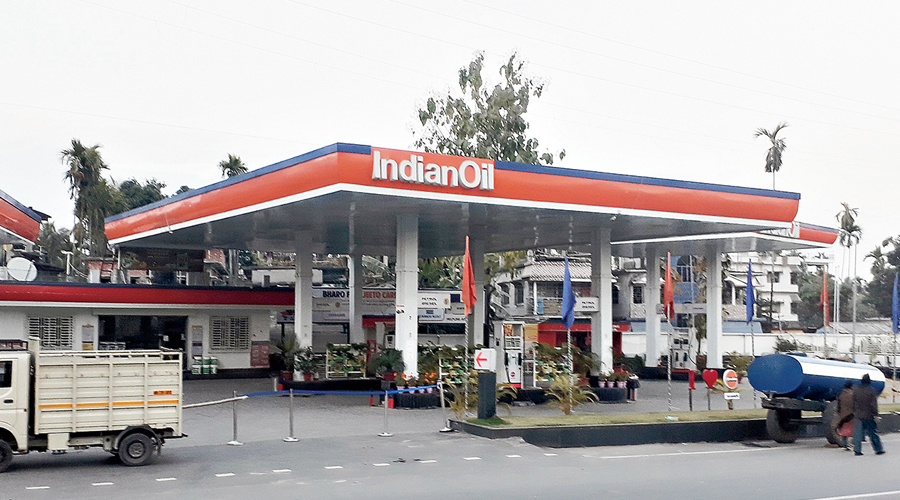Over 200 petrol pumps in north Bengal have run dry and fuel supply to parts of neighbouring Nepal and Bhutan is severely hit as oil tankers have not been able to move out of the Indian Oil Corporation Ltd (IOCL) terminal in New Jalpaiguri for three days with protesters blocking the terminal gate.
The trigger behind the impasse is a disagreement among tanker owners and drivers with IOCL authorities over the “low rates” that oil tankers are paid per kilometre to ferry fuel.
With Trinamul’s labour arm Inttuc (Indian National Trinamool Trade Union Congress) throwing its weight behind the protesting tanker owners and drivers at the gate, no tanker could move out of the terminal in three days.
Though no one said this on record, sources the gate was blocked in view of a rift among tanker owners and drivers. Some among them wanted to ply the tankers, but the protesters stopped them.
Prasenjit Roy, an Inttuc leader in New Jalpaiguri who led the protests, blamed the IOCL.
According to Roy, the IOCL had floated tenders for tanker services for the period of 2015-20. Then, a rate of Rs 3.46 per kilometre had been fixed, and accordingly, private tankers had been providing services across north Bengal based on that rate, he said. The problem started, he said, when recently, after five years, the authorities decided to float a fresh tender.
“We have come to know that the rate per kilometre in the new tender is Rs 2.81. Logically, the rate should have been higher as costs of every kind have increased during the past five years. Besides, the new rate, which is lower, would remain in force for the next five years. We are supporting tanker owners and drivers because the IOCL is not handling the matter of rates fairly,” said Roy.
Against this backdrop, tanker services from the terminal have come to a halt across north Bengal and to some locations of Nepal and Bhutan too.

Two-wheelers and cars queue up before a fuel station at Matigara near the city. Pictures by Passang Yolmo
Throughout the day, negotiations continued between the striking tanker owners and drivers and IOCL authorities, with spurts of skirmishes in the terminal area as a section of the protesters agreed to IOCL terms but others protested. There was no consensus.
“The owners and drivers will hold a meeting with IOCL authorities on Wednesday afternoon too and take a final call on their next course of action,” said a source.
“We all are waiting for Wednesday’s meeting where a final decision would be made. The tanker service should continue or else, the fuel-supply situation would turn critical. Already, a large number of pumps are closed without fuel supply,” said a petrol pump owner-based in Siliguri.
IOCL authorities could not be contacted by this reporter to confirm the new “lower” rate as alleged by Roy.
“The situation is already alarming,” said a senior state government official. “We need a speedy resolution as panic buying of fuel is being reported from parts of north Bengal,” he added.
Bikash Agarwal, general secretary of North Bengal Petrol Dealers’ Association, said there were around 490 petrol pumps in the region, with 250 being IOCL outlets. “Because of this disruption, some 90 per cent of the IOCL outlets have gone dry. Even the HPCL pumps are facing problems as they get their supplies from the IOCL terminal,” he said.










